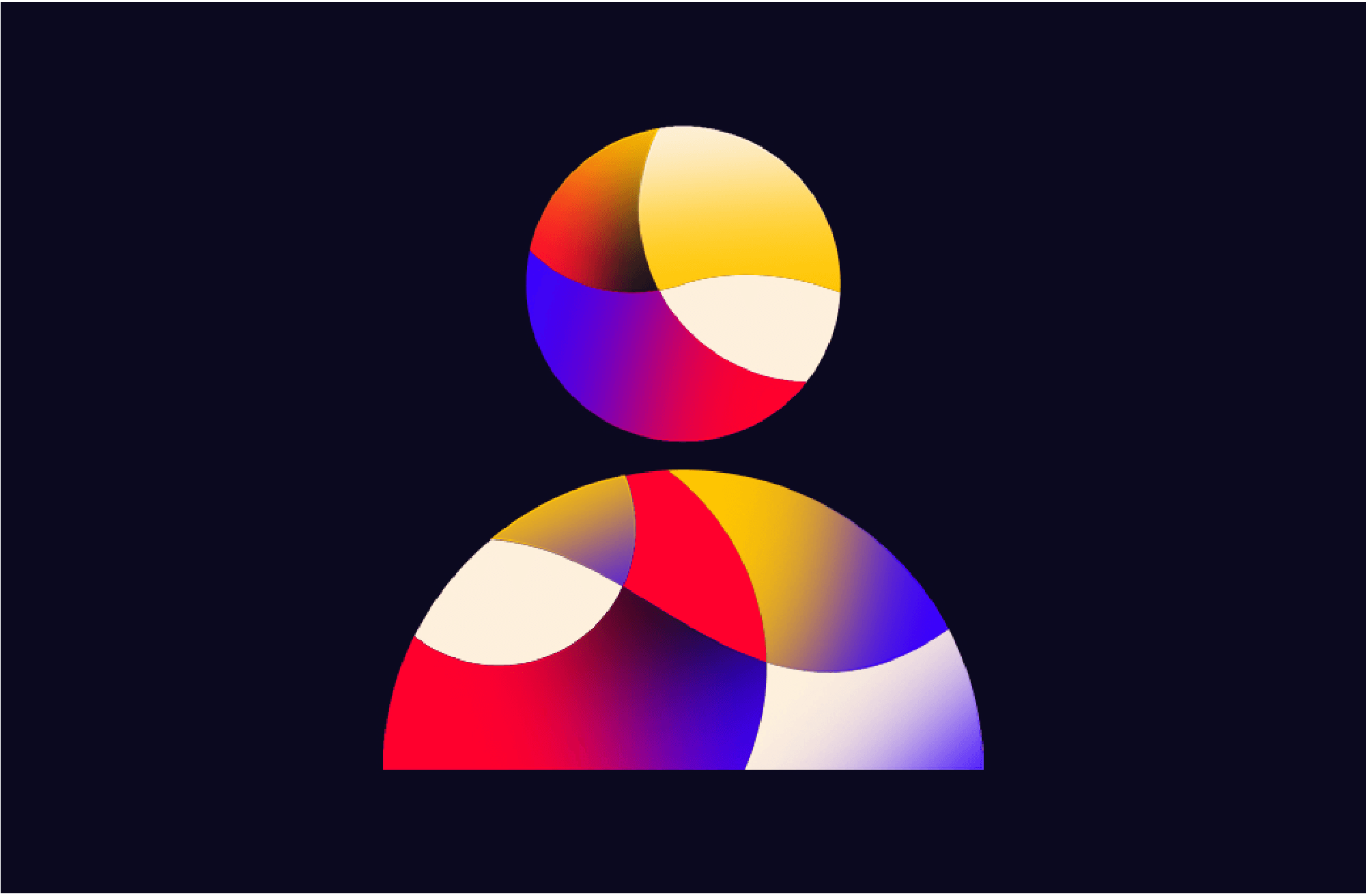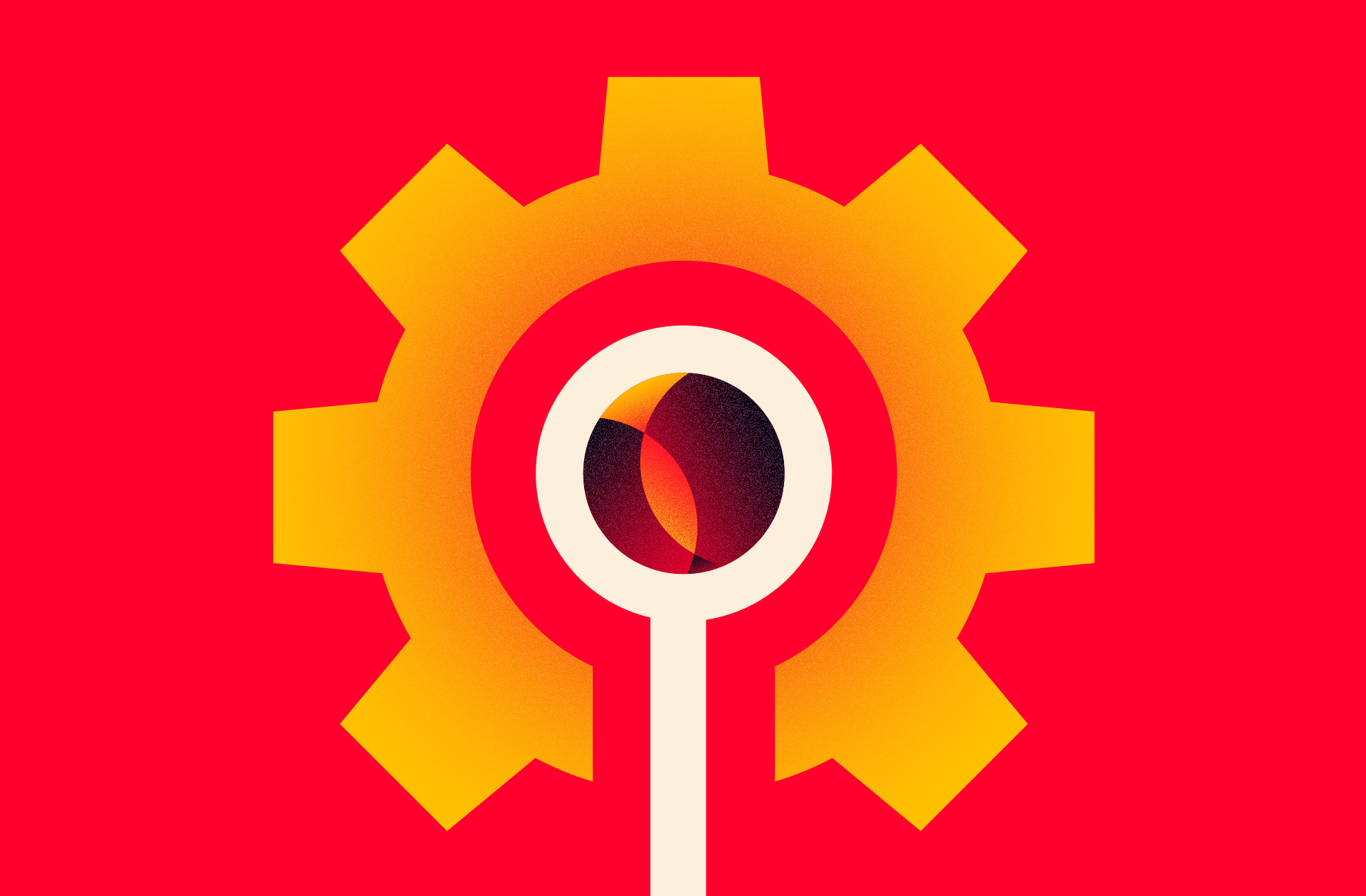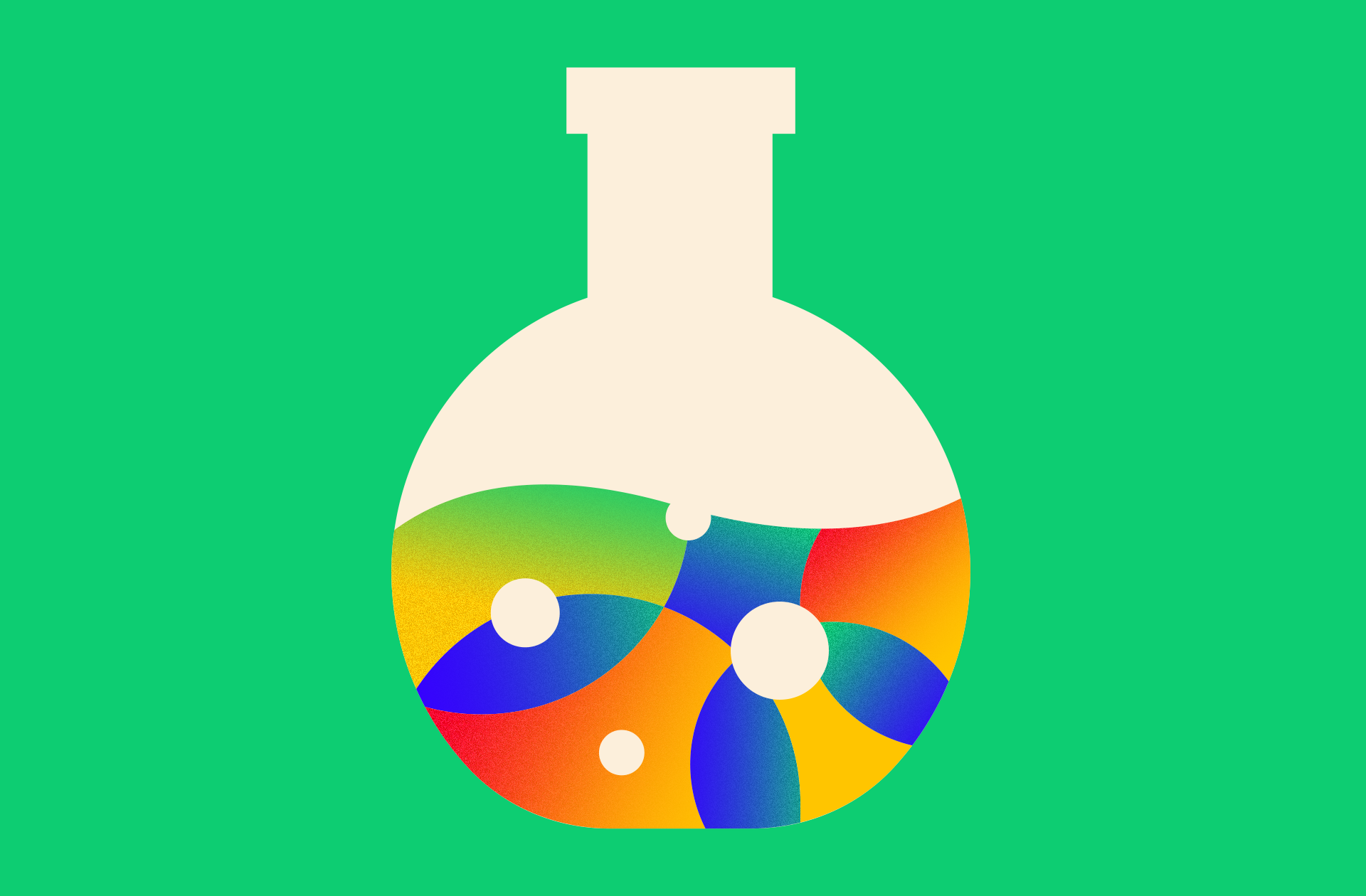Content marketing is the key to capturing people’s attention and building the relationships you need to grow your brand. But when it comes down to the actual content creation, it’s easy to get blocked. Whether you’re struggling with bandwidth or boredom, it can be tough to get into the flow state required to actually do the necessary writing, designing, editing, etc.
This is a theme we’ve been thinking a lot about this year, ever since we designed our new office space and revamped our entire production process to maximize flow and productivity. Thus far, the experiment has been successful, and we’ve adopted a few simple practices that have greatly improved our overall content creation habits.
Today we wanted to share a little bit of that knowledge with you. Whether you’re producing a high volume of content or struggling to get one e-book out the door, we hope these tips help you master flow—or at least start to.
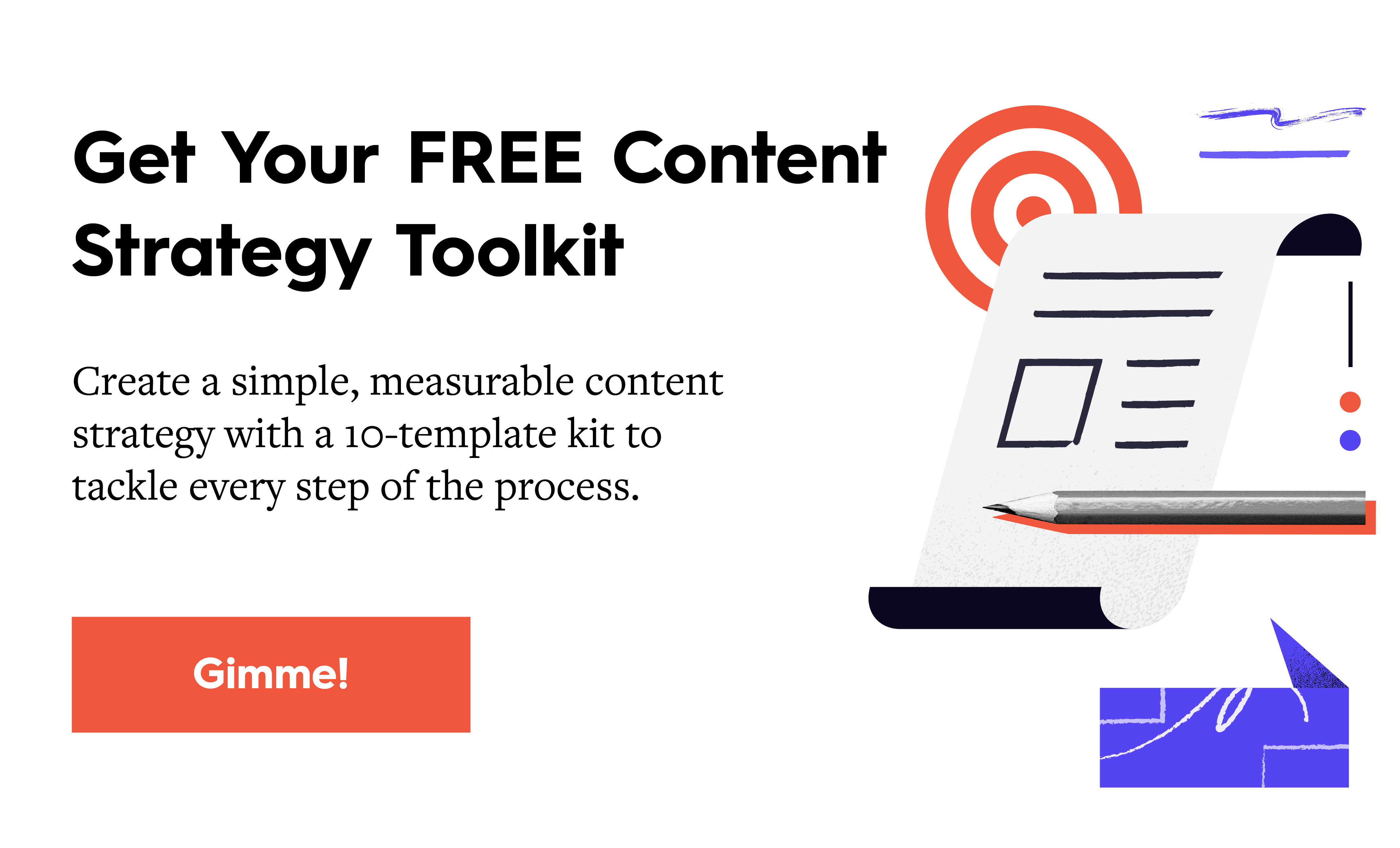
What Is Flow State?
It’s a concept originated by psychologist Mihaly Csikszentmihalyi, author of Flow: The Psychology of Optimal Experience (a creative favorite). He describes it as “being completely involved in an activity for its own sake.” We’d describe it as that feeling of being so immersed in your work that, when you glance at the clock, you realize hours have gone by and you didn’t even notice. For creatives, it’s a crucial state.
For a more in-depth overview, you can check out Csikszentmihaly’s TED talk.
Flow is something we’ve all experienced, but it can seem elusive. With a deluge of distractions and responsibilities nagging at you, it’s difficult to drop into flow on cue. But with practice it gets easier, and if you’re immersed in content creation day in, day out, it’s necessary.
OK, great, but how do you get there?
How to Drop Into Flow State for Easier Content Creation
Flow state doesn’t happen overnight, but there are a few techniques, tactics, and practices you can use to help you get—and stay— there more easily (all of which we have put to the test ourselves). The good news is that the more you cultivate flow, the easier it is to get there consistently.
First, however, you need to understand the dynamics of flow state. Flow happens when your skills and the challenge at hand are well balanced. When these elements are off, flow is blocked because of one of two things:
- Boredom: If the task is too boring, you won’t stimulated or engaged, and it will be hard to keep focus.
- Anxiety: If the task is too overwhelming, you will feel paralyzed or afraid to fail, and it will feel impossible to begin.
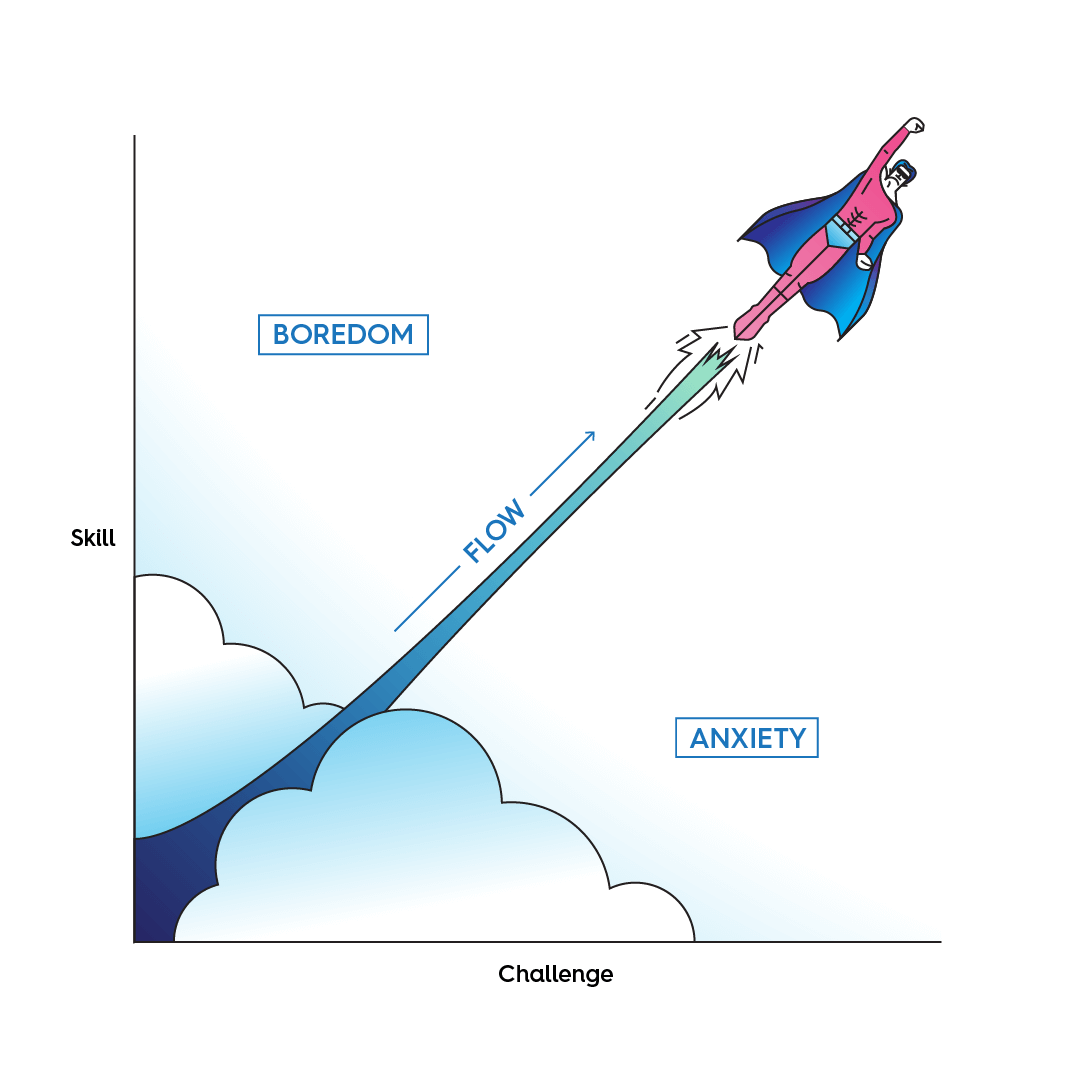
The following tips are meant to help you maintain that equilibrium and stay in flow. If you’ve been struggling to create content effectively or consistently, we hope these ideas help you work with less stress—and a better result.
Tip 1: Gather Your Assets
It’s easy to get overwhelmed or anxious when you don’t feel like you have the knowledge or items needed to complete the task at hand. Hence, before you can drop into flow you need to take the time to prepare yourself. If you’re designing, that means having the images you need filed and labeled for easy access. If you’re writing, have the research you need on hand. If you have to stop what you’re doing to hunt for something, it’s hard to get back into flow.
Note: Whether you’re writing or designing, it’s easy to get hung up on perfectionism when you’re working on early drafts. That’s a classic example of anxiety preventing you from achieving flow. Preparing work beforehand can minimize this, but if you do hit a minor roadblock like that, try to push through. For example, if you need a statistic to add to a report or an illustration for an infographic, don’t stop if you’re in the zone. Sometimes it’s best to get the draft as complete as possible, then plug missing items in later.
Tip 2: Mute All Distractions
If you’re trying to get into flow, devices are basically the devil. The incessant stream of notifications, Slacks, emails, and other interruptions will break your focus. Before we dive into content creation, we silence, hide, mute, and remove all distractions from phones and computers. Also, if you’re the type of person who procrastinates by checking your favorite sites for a “quick second” (which then becomes 30 minutes), use the SelfControl app to “kill” your favorite websites for a set amount of time.
Tip 3: Listen to Music (or Don’t)
In the vein of limiting distractions, consider how sensory input helps or hurts your flow. Our team is divided on this point. Some people are pro music, while others find it distracting. Hence, some C5ers enjoy an instrumental playlist while others prefer silence, white noise, or even the fake sound of a bustling coffee shop.
Tip 4: Know Your Personal Clock
Some people are early birds; some are night owls. Some can crush a to-do list mid-morning; some people love quiet time in the afternoon. We all have a biological clock that is attuned to certain peak productivity hours. If you know your best time of day, do your deep work then.
Tip 5: Schedule Time Blocks
Even when you plan to be in flow, that doesn’t mean other people plan to let you. Quick questions or team meetings can be incredibly distracting. To avoid these interruptions, schedule flow time on your calendar. This prevents other people from monopolizing your time—and keeps you accountable to yourself.
As part of our production process changes, we’ve created a company-wide schedule designating wherein the first half of the day is for meetings and “noise” (aka team communication) and the second half of the day is for individual flow time. This has been tremendously helpful.
Tip 6: Change Your Location
Technology and collaboration tools allow many of us the freedom to work from just about anywhere. Therefore, try to find the place that works best for you (if you can). Some C5ers find that working from home provides much more peace and quiet than the office. (Check out some of their tips to improve remote work.) Others find the distraction of laundry or the demand of kids too overwhelming to do real deep work.
To account for people’s personal preferences, we actually designed our office to include public/social space, semi-private nooks, private rooms, and super quiet “library” space. This helps us mix it up if we can’t get into flow in one spot.
Tip 7: Use Content Creation Shortcuts & Tools
Working more efficiently is a big part of flow, so we’re big fans of using tools, tips, and shortcuts to work smarter, not harder. If you’re looking to make your life easier, check out our useful resource roundups, including:
- 100+ tools for content creation
- 100+ sources of free data
- 100+ tools to write better copy
- 100+ tools for infographics
- 75+ tools to build a brand identity
(BTW, if you find any other awesome tools, send them our way.)
Remember that Flow Isn’t Everything
Flow is a powerful practice, and the more you do it, the better you’ll get. But remember that there are plenty of other factors that also influence your content marketing. Work to optimize every part of your content process, and you’ll increase your chances of success at every stage. A few final tips to help you do that:
- Find good ideas faster with our 10 tips to brainstorm better ideas.
- Don’t waste your flow on work that doesn’t move the needle. Start with a strong content strategy to make sure you’re creating the right type of content for your goals.
- Check out our best tips to master every stage of content creation.
- Find out how to avoid the most common content creation mistakes.
Also, if you run out of bandwidth or brain power, consider bringing in reinforcements. Here’s how to find a creative agency that will be a true creative partner. Or hit us up. We’d love to talk through your challenges.



